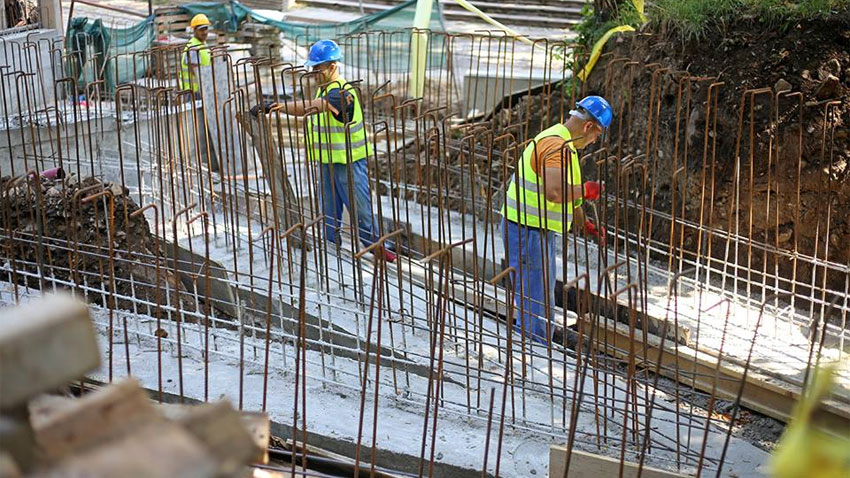The construction industry in Bulgaria is facing serious problems due to a shortage of building materials on the country’s exchanges. At this time there is a major shortage of steel and all of its derivatives, and the reason for this is the war in Ukraine, Plamen Mihalev, chairman of the Construction Chamber in Stara Zagora said in an interview with the BNR. In his words, after 24 February, the start of the war in Ukraine, all exchanges in this country stopped the sale of this raw material, as the imports are from Ukraine and Russia.
“Anything that has anything to do with metal is just not there at the moment, not for sale, there is no price tag. There is no place to buy it, that is how things stand,” Mihalev says
The problems with the cost of building materials in construction actually started at the end of last year when prices surged as a result of the higher prices of energy – gas, electricity. As the war broke out in Ukraine the problem grew worse - to begin with it was all about prices, whereas now we have a shortage of primary building materials. At this time there is a shortage of steel and all of its derivatives – sheet metal, profiles, reinforcing bars.

“Much of the imported raw material comes from Russia. If it is not imported as production, it is imported as building materials, pre-production. Deliveries have, to all intents and purposes, been halted,” says Plamen Mihalev, and adds:
“Steelworks in Bulgaria have shut down, and traders have sold all of the produce available. Two days ago a small quantity of reinforcing bars was sold – the price of the raw material reached 2,100 Leva. By way of comparison – on 23 February the going price was around 1,500 Leva.”
“As for Turkey, where we import some of the raw materials from, as far as I know there are no quantities available there either, and the government has made the decision to stop export,” Plamen Mihalev says. The problem even affects the steel coming from Europe because a large portion of this raw material came from Ukraine and from Russia. The problem at this time is with metals, but all other prices have gone up as well. The price of concrete, for example, has gone up by 20% since the start of the year. Watching the prices of gas and electricity – factories in Bulgaria use mostly gas – and if the upward trend continues, there is no way the price of building materials can go down.”

Plamen Mihalev says that the uncertainty is scary, because even if the military action were to be halted soon, there would be no guarantee that raw material deliveries will be resumed. In his words, at the moment many of the big construction sites are still being finished under their own inertia, but some companies have restricted sales and investors are refraining from starting any new projects. Bankruptcies are not to be ruled out. It is everybody’s problem, and its impact will continue for months, Plamen Mihalev, chairman of the Construction Chamber in Stara Zagora said in an interview for Radio Stara Zagora, BNR.
Compiled by Elena Karkalanova
Photos:BNR: Ani Petrova, Georgi Naykov
41% of the member companies of the Bulgarian Industrial Association expect an economic decline in 2025. 21% believe there will be no change compared to 2024. 65% of the respondents anticipate a deterioration in their own business due to the..
The price of electricity for households could increase by nearly 9% starting next year, according to estimates by the Energy and Water Regulatory Commission. This means that with an average consumption of nearly 400 kilowatt-hours, the monthly bills..
The leadership of the Confederation of Independent Trade Unions in Bulgaria (CITUB) insists that a national subsistence wage be introduced in Bulgaria, with the minimum wage in the country reaching at least 80% of the subsistence wage by 2027. According..

+359 2 9336 661
